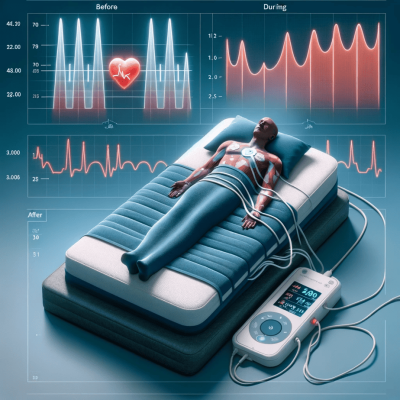In today?s news, we will look into the recent study analyzing data spanning 25 years discovered that having just five hours of sleep or less each night is linked to a higher risk of being identified with several chronic diseases. Also, learn why to add getting a good night’s sleep to your list of priorities, according to a new study, if you want to maintain the health of your heart. Finally, researchers looking at children’s sleep and eating patterns have discovered further information concerning a possible cause of childhood obesity.
Table of Contents
Toggle5 hours or less of sleep a night may increase chronic illness risk, study finds
Original Source: Sleeping 5 hours or fewer every night could put you at risk of multiple chronic diseases: study
A new study utilizing 25 years of data indicated that sleeping five hours or less every night increases the risk of chronic disease.
The study looked at the sleep duration of more than 7,000 adults ages 50, 60, and 70.
Those who reported obtaining five hours of sleep or less at age 50 were 40% more likely to develop two or more chronic disorders in the past 25 years, the study revealed.
As people age, their sleep habits and structure change, said Severine Sabia of University College London’s Institute of Epidemiology & Health.
Seven to eight hours a night is suggested for everyone.
Sabia stated that above- or below-recommended sleep lengths may be linked to chronic disorders.
A separate U.S. study published last week indicated that poor sleep is widespread among Americans who sleep less than seven hours.
Sabia and her team wanted to see if less sleep increased the risk of numerous chronic illnesses.
Short sleep is linked to multimorbidity, Sabia said.
Multimorbidity means having multiple chronic conditions. It’s more likely as we age, but researchers are concerned since it’s rising in some locations.
More than half of older persons in high-income nations have at least two chronic conditions, said Sabia. Multimorbidity is connected with high health care service use, hospitalizations, and impairment.
This study used data from the Whitehall II cohort study, a database of more than 10,000 British Civil Service employees in London in 1985.
Follow-ups monitored participants’ health as they aged.
Between 1985 and 2016, they self-reported sleep six times. Researchers looked at sleep duration data from 7,000 adults aged 50, 60, and 70.
They then searched for chronic problems and when they appeared.
Diabetes, cancer, coronary heart disease, stroke, heart failure, chronic renal disease, liver disease, depression, dementia, Parkinson’s disease, COPD, and arthritis were included.
Sleeping five hours or less at age 50 increased the risk of a single chronic illness by 20% compared to those getting the recommended hours.
At 50, 60, and 70, those who slept five hours or less had a 30-40% higher risk of multimorbidity than those who slept seven hours.
Those who reported five hours of sleep at age 50 were 25% more likely to have died during the 25-year follow-up period, possibly due to an increased risk of chronic diseases.
Does oversleeping cause chronic illness?
According to study, it might in our 60s and 70s, but not earlier.
Researchers found a link between nine-hour sleep and multimorbidity at ages 60 and 70.
Long sleep durations at age 50 in healthy adults were not linked to multimorbidity.
Long sleepers had a 35% greater chance of having another chronic illness if they had one at age 50, possibly due to underlying health issues.
Senior cardiac nurse at the British Heart Foundation Jo Whitmore said in a release, “Getting adequate sleep allows your body to relax.”
Poor sleep can also increase inflammation and blood pressure, which can lead to heart disease and stroke.
This research adds to a growing body that emphasizes sleep’s importance.
Sabia said excellent sleep hygiene includes making sure the bedroom is quiet, dark, and comfy.
Electronics and heavy meals should be avoided before bed. Physical exertion and daytime light may enhance sleep.
Sleep is as crucial to heart health as food and exercise, study shows
Original source: Sleep may be just as important to heart health as diet and physical activity, research finds
New research shows getting enough sleep can help keep your heart healthy.
According to the CDC, heart disease is the nation’s leading killer. Cardiovascular disease kills one American every 34 seconds.
The American Heart Association added sleep length to “Life’s Essential 8” in June. These guidelines were intended to improve Americans’ heart health.
Quit smoking, eat better, become active, manage weight, control blood pressure, cholesterol, blood sugar, and sleep well.
The American Heart Association journal released some of the research Wednesday.
Scientists at Columbia University’s Mailman School of Public Health found that cardiovascular health guidelines are more accurate when they incorporate sleep.
Researchers looked examined sleep records from 2,000 middle-aged or older participants in the Multi-Ethnic Study of Atherosclerosis, or MESA.
Participants underwent sleep studies. They filled out sleep surveys, wore a sleep monitor for seven days, and slept overnight for a study.
Poor sleep habits are “ubiquitous” among Americans, including research participants. 63% slept less than seven hours and 30% slept less than six. CDC recommends seven to nine hours of sleep for adults.
Less than seven hours of sleep a night increases the risk of “poor sleep efficiency,” irregular sleep patterns, daytime drowsiness, and sleep apnea. Half the study participants had moderate to severe sleep apnea. More than a third experienced sleeplessness and 14% daytime drowsiness.
Less than seven hours of sleep was linked to obesity, type 2 diabetes, and high blood pressure. Other studies has linked short sleep to heart-harming chronic disorders.
Negative sleep is linked to other poor health behaviors, said research author Nour Makarem. Poor health habits contribute to heart disease.
Makarem says there’s growing evidence that sleep-deprived people eat poorly. Sleep creates and controls hormones that can make you feel full or hungry. When hormones are out of sync, you may eat more and want calorie-rich meals.
Makarem added poor sleep reduces physical activity.
Poor diet and lack of exercise are heart disease risk factors, she noted. Sleep affects many cardiovascular disease risk factors, including psychological ones.
Poor sleep increases stress and depression, which damage heart health.
Sleep is linked to clinical, psychologic, and lifestyle-related heart disease risk factors. Poor sleep increases heart disease risk, so that’s not a surprise, said Makarem.
Sharon Cobb, director of prelicensure nursing programs at Charles R. Drew University of Medicine and Science in Los Angeles, said sleep should be considered when evaluating overall health.
She hopes future research will show a link between health and sleep and motivate more doctors to ask questions.
?They test your blood pressure, ask how well you eat and how much you exercise, but not many ask how well you sleep,? said Cobb, who was not involved in the current research. “Good sleep promotes wellness.”
Kids Who Lack Sleep Will Snack More, Research Shows
Original source: Sleep-Deprived Kids Will Snack More: Study
Experts examining youngsters’ sleep and eating habits have learned more about childhood obesity.
Researchers observed that sleep-deprived kids eat more the next day. Some of those extra calories come from sugary foods.
“When children lost sleep, they ate an extra 74 calories each day, caused by a 96-calorie increase in non-core items like crisps and chocolate,” said Jill Haszard, a biostatistician at the University of Otago in Dunedin, New Zealand.
“Such a distinction could explain why lack of sleep causes childhood obesity,” she said.
The findings were independent of idle time and physical exercise, which could explain why kids ate more.
The study used DREAM (Daily Rest, Eating, and Activity Monitoring) trial data. It contained 105 8-12-year-olds of varying sizes. 61% were normal-weight. The rest were fat.
Participants went to bed an hour early for a week, then normal for a week.
All wore a wrist gadget to track their behavior around the clock, including every minute spent sleeping, sitting, and active.
Twice a week, youngsters were asked what they ate and drank the day before.
The 82 children with complete data lost 48 minutes of sleep a night, yet woke up eight minutes less. The increased awake time included 31 sedentary minutes, 21 light minutes, and 4 strenuous minutes.
Tired youngsters ate 74 extra calories per day and 96 more goodies. Dietary staples have fewer calories.
After accounting for the extra energy needed to stay up longer, people ate 63 more calories per day on average.
Researchers found a higher link between sleep deprivation and evening calorie intake and high-calorie items eaten for enjoyment. Activity contributed to healthier eating, but inactive time led to more nighttime eating.
“These experimental findings suggest that changes to nutritional consumption, not reductions in physical activity, explain why not getting enough sleep raises the risk of overweight and obesity in childhood,” stated DREAM research leader Rachael Taylor.
Improving sleep may be a smart way to manage weight, says Taylor.
Further research is needed to evaluate if sleep improves diet and weight over time.
Reading or taking a bath before bed may help children sleep the recommended 10 to 11 hours each night and lower the risk of overweight and obesity, Haszard added.
The findings were presented Oct. 18-22 in Melbourne, Australia. Until published in a peer-reviewed journal, meeting findings are considered preliminary.
Summary of today?s sleep health news
To sum it up, the study, which examined the amount of time people spent sleeping at 50, 60, and 70 years old, was released on Tuesday in the peer-reviewed journal PLOS Medicine. The study found that, compared to persons who slept roughly seven hours a night, those who reported consistently receiving five hours of sleep or less at age 50 were 40% more likely to have been diagnosed with two or more chronic conditions over the prior 25 years.
Furthermore, researchers at Columbia University’s Mailman School of Public Health have found that including sleep in cardiovascular health guidelines improves their ability to forecast a person’s risk of heart disease. Obesity, type 2 diabetes, and high blood pressure were more prevalent among people who slept less than seven hours per night. Other studies have linked insufficient sleep to chronic conditions that may be harmful to heart health.
Lastly, researchers discovered that kids who don’t get enough sleep tend to eat more calories the following day. Additionally, some of those extra calories originate from less beneficial, sugar-filled snacks or indulgences. According to Jill Haszard, a biostatistician at the University of Otago in Dunedin, New Zealand, “when children lost sleep, overall they ate an extra 74 calories per day, caused by an increase of 96 calories per day in non-core foods such as crisps and chocolate, which potentially increases the risk of obesity.”








